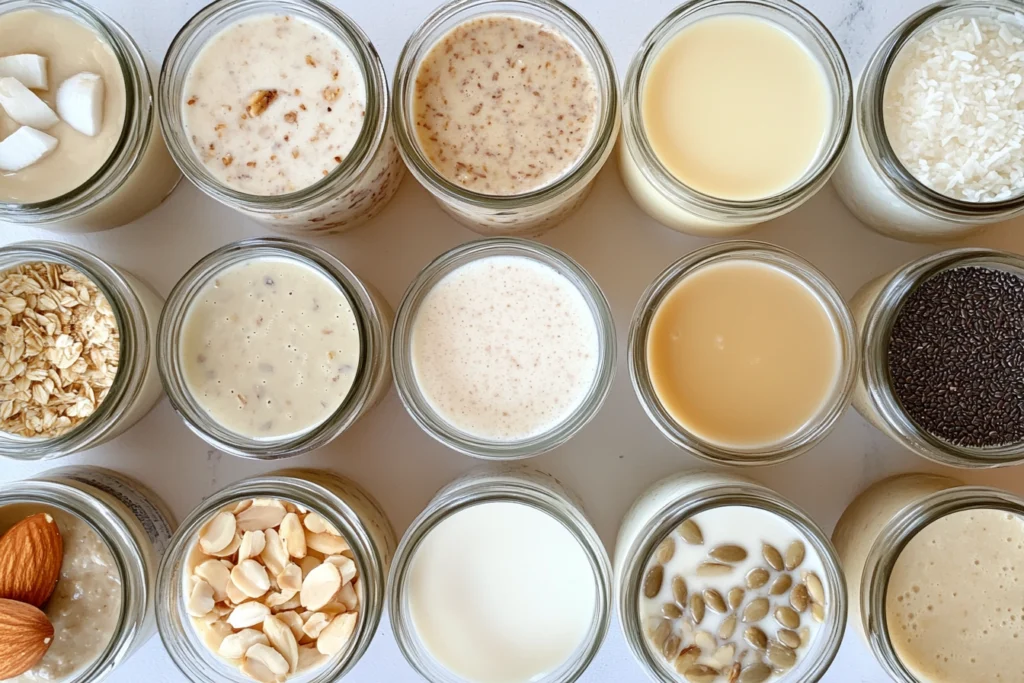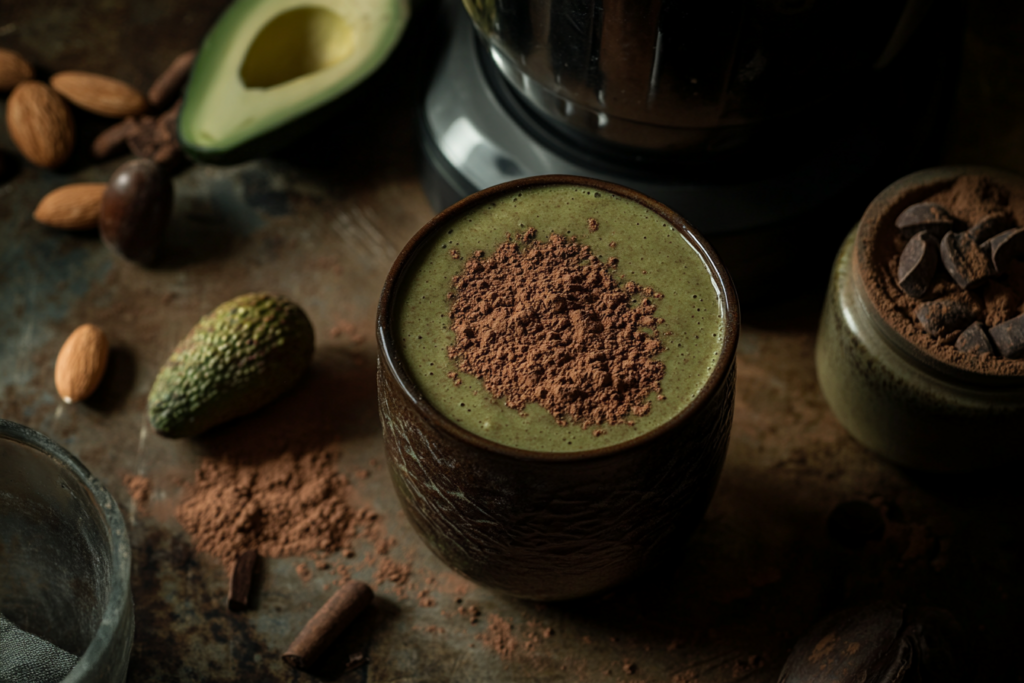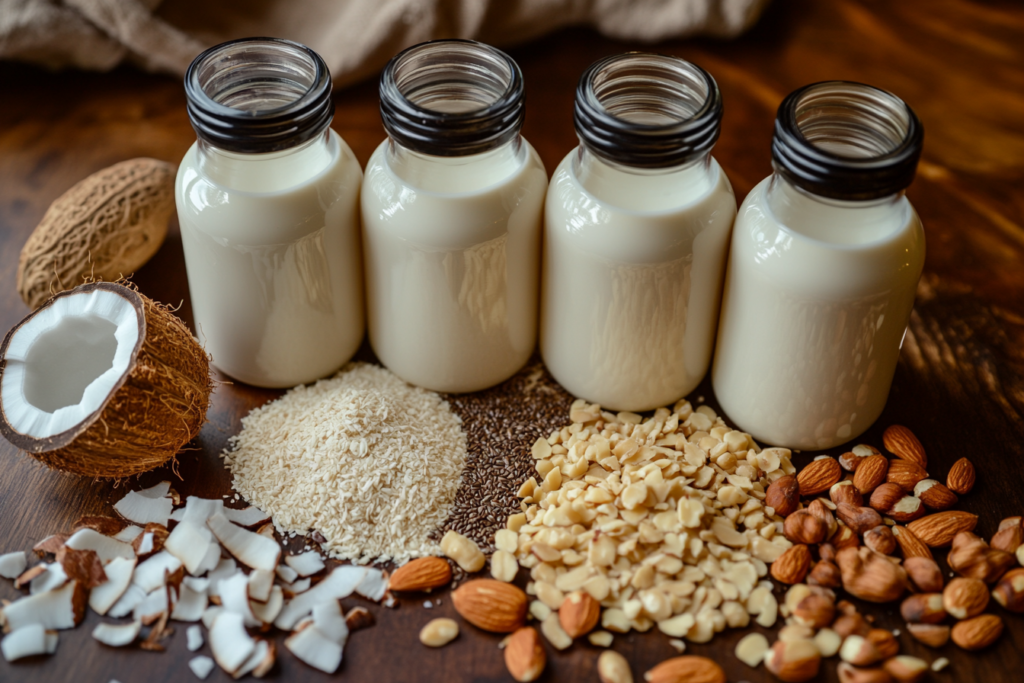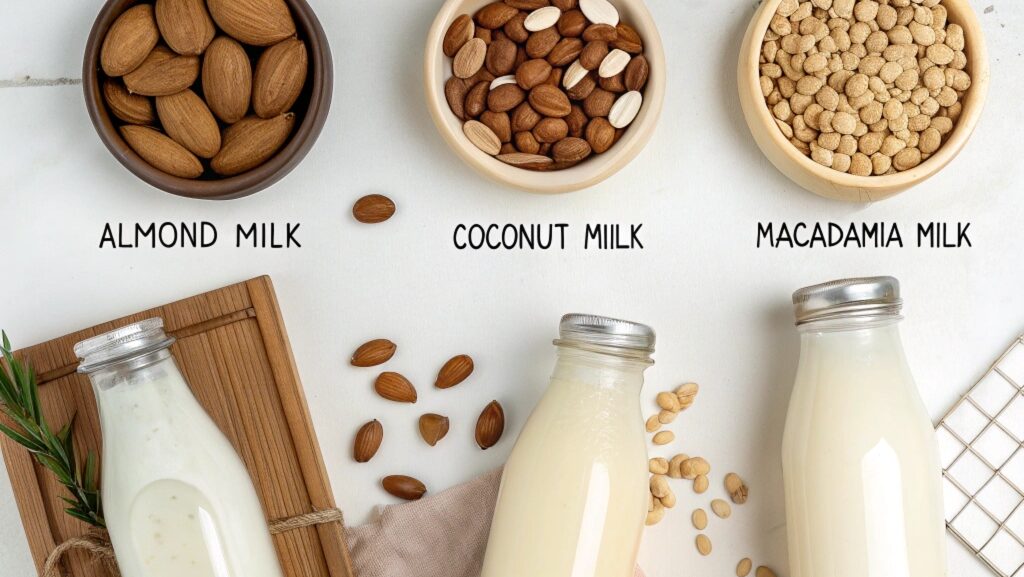Starting a ketogenic diet often comes with surprising adjustments. For instance, one of the most unexpected changes is realizing that what milk is keto-friendly isn’t as straightforward as it seems. Milk, a common dietary staple, doesn’t always align with keto principles due to its natural sugar content, making many traditional milk options unsuitable for a low-carb lifestyle.
As a result, even small amounts of regular milk can disrupt ketosis. However, the good news is that there are plenty of keto-friendly milk alternatives available. These options allow you to enjoy creamy beverages, tasty recipes, and your daily coffee without breaking your carb goals. In this guide, we’ll explore what makes milk keto-friendly and highlight the best alternatives to keep you on track with your ketogenic journey.
Table of Contents
Understanding the Keto Diet
The ketogenic diet is based on high fat, moderate protein, and very low carbohydrates. By drastically reducing carbs, your body enters a state called ketosis, where it burns fat for fuel instead of glucose.
What Does “Keto-Friendly” Mean?
Keto-friendly foods and drinks must be:
- Low in carbs: Ideally under 2-3 grams per serving.
- Free from added sugars.
- Compatible with keto macros: Supporting a high-fat, low-carb balance.
Why Regular Milk Isn’t Ideal for Keto
Cow’s milk contains lactose, a natural sugar that quickly adds up in carbs. For example:
- Whole milk: 12g carbs per cup.
- Skim milk: 12g carbs per cup with less fat.
Even a small amount of milk can consume a significant portion of your daily carb allowance. For strict keto dieters, cow’s milk is best avoided.
Keto-Friendly Milk Alternatives
Thankfully, there are plenty of low-carb milk alternatives that fit perfectly into a ketogenic lifestyle.
1. Almond Milk
Almond milk is a top choice for keto dieters due to its versatility and low carb count.
Benefits of Almond Milk on Keto
- Contains 1-2g carbs per cup (unsweetened versions).
- Naturally dairy-free and low in calories.
- Works well in coffee, smoothies, and baking.
Nutritional Facts: Unsweetened Almond Milk
| Nutrient | Amount per Cup |
|---|---|
| Calories | 30-40 |
| Carbs | 1-2g |
| Fat | 2.5-3g |
| Protein | 1g |
💡 Tip: Always choose unsweetened almond milk to avoid hidden sugars.
2. Coconut Milk
Coconut milk is another keto favorite, known for its rich texture and high-fat content.
Benefits of Coconut Milk on Keto
- Rich in healthy fats, including medium-chain triglycerides (MCTs): These promote ketosis and provide a quick energy boost.
- Creamy texture, ideal for recipes like curries, soups, and keto desserts.
Nutritional Facts: Canned Full-Fat Coconut Milk
| Nutrient | Amount per Cup |
|---|---|
| Calories | 445 |
| Carbs | 6g |
| Fat | 48g |
| Protein | 4.5g |
💡 Note: For lower carbs, opt for coconut milk in cartons, which typically contains 1-2g carbs per serving.
3. Macadamia Milk
Macadamia milk is a creamy, low-carb option made from macadamia nuts.
Why Macadamia Milk Is Great for Keto

- Extremely low in carbs, with 1g per cup.
- High in heart-healthy monounsaturated fats.
Nutritional Facts: Unsweetened Macadamia Milk
| Nutrient | Amount per Cup |
|---|---|
| Calories | 50 |
| Carbs | 1g |
| Fat | 5g |
| Protein | 1g |
💡 Pro tip: Its creamy texture makes it perfect for lattes and smoothies.
4. Flax Milk
Flax milk is an eco-friendly and keto-approved milk alternative made from flaxseeds.
Benefits of Flax Milk on Keto
- Virtually zero carbs in most unsweetened versions.
- Naturally rich in omega-3 fatty acids.
Nutritional Facts: Unsweetened Flax Milk
| Nutrient | Amount per Cup |
|---|---|
| Calories | 25-50 |
| Carbs | 0-1g |
| Fat | 3g |
| Protein | 0g |
Milk Options to Avoid on Keto
Not all milk options are suitable for a ketogenic lifestyle. Here are some to avoid:
Regular Cow’s Milk
Despite its nutritional benefits, cow’s milk is too high in carbs for keto. Even skim or reduced-fat versions are unsuitable due to their lactose content.
Sweetened and Flavored Milk Alternatives
Many plant-based milks, such as sweetened almond or vanilla soy milk, contain added sugars that can spike carb counts. Always check labels for terms like “sweetened” or “flavored.”
Common Mistakes When Choosing Milk
Selecting the right milk can be tricky. Avoid these common pitfalls:
Overlooking Nutrition Labels
Always read the label carefully. Look for total carbs per serving and avoid products with added sugars or syrups.
Ignoring Serving Sizes
Even keto-friendly milk can become carb-heavy if consumed in large amounts. Stick to the recommended serving size.
How to Choose the Right Milk for Keto
Choosing the right milk is simple when you know what to look for.
Check Labels for Carbs and Ingredients
Prioritize products with 1-2g carbs per serving and no added sugars. Avoid anything with syrups, cane sugar, or artificial sweeteners.
Opt for Unsweetened Varieties
“Unsweetened” is your keto keyword. This ensures no extra carbs from sugar.
Recipes Using Keto-Friendly Milks
Keto-friendly milks are versatile and can be used in various recipes. Here are a few ideas to inspire you:

Keto Smoothie Recipe
- Ingredients: 1 cup almond milk, a handful of spinach, ½ avocado, 1 tbsp cocoa powder, and 1-2 drops of liquid stevia.
- Instructions: Blend all ingredients until smooth and enjoy a creamy, low-carb drink.
Dairy-Free Keto Coffee Creamer
- Ingredients: 1 cup coconut milk, 1 tsp vanilla extract, and a pinch of cinnamon.
- Instructions: Whisk ingredients together and use as a delicious coffee creamer.
Keto Chia Pudding
- Ingredients: 1 cup macadamia milk, 2 tbsp chia seeds, and a few drops of liquid stevia.
- Instructions: Mix ingredients, refrigerate overnight, and top with low-carb berries.
Keto Milkshake Recipe: Creamy Chocolate Delight
Ingredients:
- 1 cup unsweetened almond milk
- ½ avocado
- 1 tbsp unsweetened cocoa powder
- 1-2 drops of liquid stevia (or to taste)
- A handful of ice cubes
Instructions:
- Combine all the ingredients in a blender.
- Blend until the mixture is smooth and creamy.
- Pour into a glass, garnish with a sprinkle of cocoa powder (optional), and enjoy this rich, low-carb milkshake!
Common Problems with Choosing Keto-Friendly Milk

Understanding what milk is keto-friendly isn’t always straightforward. Many store-bought milk alternatives may seem healthy at first glance but often contain hidden sugars or additives that increase their carb count. For example, flavored almond milk or sweetened coconut milk can contain as much as 10-15 grams of carbs per serving. To avoid this, always check the nutritional label for the total carb content and avoid sweetened or flavored varieties.
Additionally, serving size is a common pitfall. Even keto-approved milks like almond or flax milk can contribute more carbs than expected if you don’t measure portions carefully. Staying mindful of portion sizes can help you stay within your daily carb limit.
Exploring the Nutritional Benefits of Keto-Friendly Milks
Keto-friendly milk alternatives are more than just substitutes for traditional dairy—they are nutritional powerhouses that align perfectly with a low-carb lifestyle. Let’s explore the unique advantages of these options.
Rich in Essential Nutrients
Each keto-friendly milk option offers a variety of nutrients that benefit your health. For example, unsweetened almond milk is a fantastic source of vitamin E, a potent antioxidant that protects your cells from oxidative stress and promotes glowing skin. With just 1-2 grams of carbs per serving, it’s a versatile choice for smoothies, savory dishes, and baked goods. On the other hand, coconut milk shines as a keto favorite due to its high concentration of medium-chain triglycerides (MCTs). These fats not only provide a quick energy boost but also enhance fat metabolism, making it easier for your body to stay in ketosis.
High in Healthy Fats
If you’re looking to increase your fat intake, macadamia milk is an excellent choice. Its creamy texture and subtle nutty flavor come with a generous dose of monounsaturated fats, which are known to improve heart health by lowering bad cholesterol (LDL) and raising good cholesterol (HDL). These fats are vital for maintaining energy levels on keto while supporting cardiovascular health. Similarly, flax milk is rich in omega-3 fatty acids, which are crucial for brain health, reducing inflammation, and supporting overall well-being.
Dairy-Free and Allergen-Friendly
For individuals with dietary restrictions, keto-friendly milks are a game-changer. Many of these alternatives, such as almond, coconut, and flax milk, are naturally dairy-free, making them suitable for people with lactose intolerance or dairy allergies. Additionally, most of these options are gluten-free, providing a safe choice for individuals with gluten sensitivities or celiac disease. However, always choose unsweetened versions to avoid added sugars that can increase carb counts and disrupt ketosis.
Versatility in Recipes
Keto-friendly milks aren’t just for drinking—they’re incredibly versatile in the kitchen. These alternatives work well in a variety of recipes, from creamy soups and curries to decadent desserts and refreshing smoothies. For instance, you can create a keto-friendly milkshake by blending unsweetened almond milk with frozen avocado, cocoa powder, and a touch of stevia. Alternatively, coconut milk can be used to make rich keto chia puddings or dairy-free whipped cream. By experimenting with these options, you can discover delicious ways to elevate your keto meals and treats.
FAQ: What Milk Is Keto-Friendly?
1. Can I drink cow’s milk on a keto diet?
No, cow’s milk is not keto-friendly because it contains lactose, a natural sugar. Even a single cup of whole milk has about 12 grams of carbs, which can quickly exceed your daily carb limit on keto.
2. What is the best milk for coffee on a keto diet?
Unsweetened almond milk and coconut milk are excellent choices for coffee on keto. Both are low in carbs and can add a creamy texture to your coffee without compromising your macros.
3. Are there any keto-friendly dairy-based milks?
Heavy cream and half-and-half are keto-friendly dairy options. They contain minimal carbs and are often used as milk substitutes in coffee, recipes, and desserts.
4. Is oat milk keto-friendly?
No, oat milk is not suitable for a ketogenic diet. Even unsweetened oat milk contains about 10-15 grams of carbs per cup, making it too high in carbs for keto.
5. What’s the lowest-carb milk alternative?
Flax milk and macadamia milk are among the lowest-carb milk alternatives, with 0-1 gram of carbs per serving. Unsweetened almond milk is also an excellent option with just 1-2 grams of carbs per cup.
6. Can I make keto-friendly milk at home?
Yes, you can make keto-friendly milk at home. For example, blending unsweetened shredded coconut with water creates a simple homemade coconut milk. Similarly, you can make almond milk by blending soaked almonds with water and straining the mixture.
7. Is soy milk keto-friendly?
Unsweetened soy milk can be keto-friendly, with around 1-3 grams of carbs per cup. However, it’s essential to avoid sweetened or flavored soy milk, which can have higher carb content.
8. What milk should I avoid on keto?
Avoid traditional cow’s milk, sweetened almond milk, oat milk, rice milk, and flavored milk alternatives. These options typically have high carb counts that can hinder ketosis.
Conclusion: Your Guide to Keto Milk Alternatives
Finding the right milk on keto doesn’t have to be complicated. With options like almond, coconut, macadamia, and flax milk, you can enjoy creamy textures and delicious recipes without breaking your carb limits. Just remember to read labels, choose unsweetened varieties, and watch portion sizes. Cheers to healthier, keto-friendly milk choices!

